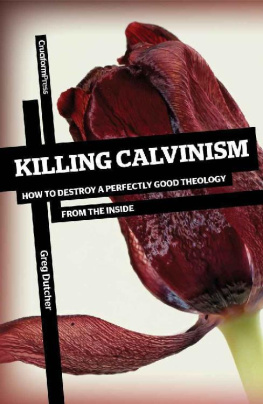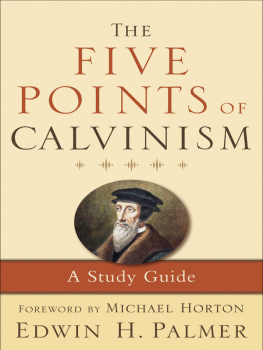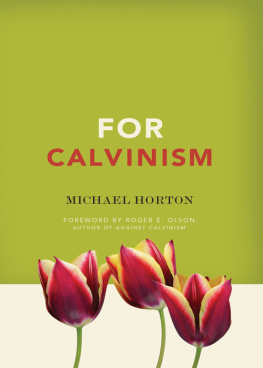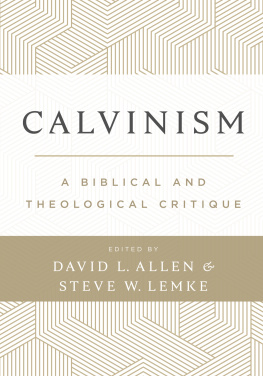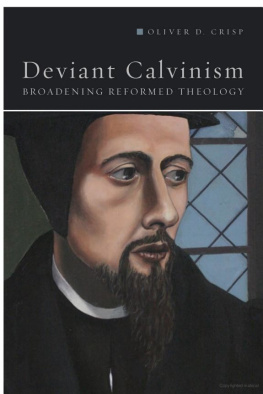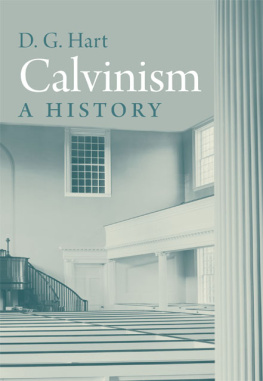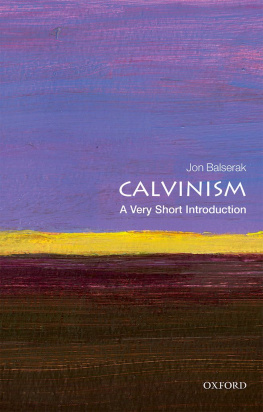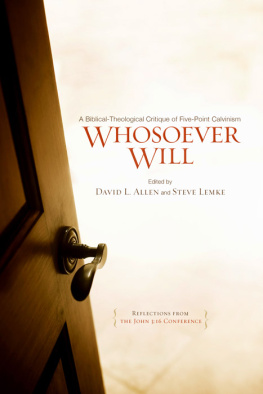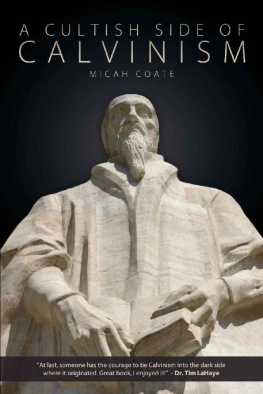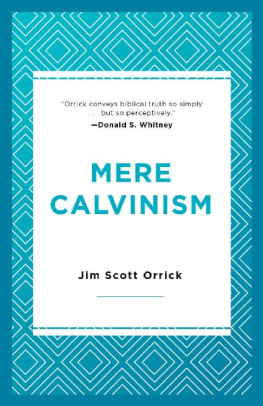Killing Calvinism
How to Destroy a Perfectly Good Theology from the Inside
Greg Dutcher
Cruciform Press | Released June, 2012
To Roscoe Adams
November 19, 1943 April 22, 2012
The most joyful, humble, and gracious Calvinist Ive ever known. While I have many teachers, I have few spiritual fathers. Thank you for the privilege of being your true son in the faith.
You were alive and well when this dedication was first written, but you never saw it because God wanted you to see something far superiorand youre seeing it. Ill see it with you on the other side.
Greg Dutcher
2012 by Greg Dutcher. All rights reserved.
This book blew me away! Greg Dutcher skillfully diagnoses how I kill the very truth I love by my hypocrisy, pride, anger, and judgmental attitude. This book will serve a young generation of Calvinists. But the older generation had better heed it, too. Theres medicine here for all our hearts, and taking this medicine will make us more joyful and more humble when making our glorious God known.
Thabiti Anyabwile , author; Senior Pastor, First Baptist Church, Grand Cayman; Council Member, The Gospel Coalition
Many Calvinists will find reading this book to be a painful experience. But medicine is like that. The good news is that a healthy dose of Dutchers wisdom will go a long way in bringing spiritual health to the young, restless, and reformed.
Sam Storms , author, speaker; Senior Pastor of Bridgeway Church, Oklahoma City
An absolute must-read for every YRRand older Calvinists too! With wit, compassion, and candor, Greg Dutcher exposes how sin taints our theological convictions and undermines our witness. But he doesnt leave us there; through biblical and historical examples he shows us Calvinism done right to the glory of God.
Lydia Brownback , author and speaker
Table of Contents
Chapters
One
Two
Three
Four
Five
Six
Seven
Eight
No Book Can Save Calvinism
The Calvinists Favorite Flower: T.U.L.I.P.
More books from Cruciform Press
Introduction
Its interesting to compare the typical Calvinist of yesteryear with his 21 st -century counterpart. The former favored his tweed sport coat and may very well have been caught taking out the garbage while wearing a necktie. The latter prefers ripped jeans and sandals, and on any given Sunday may be found serving communion in the same outfit. The Calvinist of old attended worship services in a stately spired church building; lived in a quiet, well-kept home; and enjoyed listening to Bach on his phonograph. Could he have gazed down the corridors of time, he would have stared incredulously at todays 20-something Calvinist dancing madly in total silence, some kind of white wires dangling from his ears as he prepares to attend a meeting of his missional church in a dingy YMCA . Yesterdays Calvinist discussed the finer points of Berkhoffs Systematic Theology with his button-down peers at the Philadelphia Conference of Reformed Theology; the hipster Calvinist kicks around a little Grudem and Driscoll at the local sports bar over a pint of Guinness.
Ridiculous generalizations? Sure, but I trust you see my point. Calvinism is in right now, and while it struts about in different dress than it did, say, a century ago, it has the same theological framework that propelled men from Augustine to Piper to impact the world with their writing and teaching. While Calvinism itself has not changed, it has attracted a distinctly contemporary audience. Charles Spurgeon noticed this same continuity of doctrine but freshness of expression in his day:
It is no novelty, then, that I am preaching; no new doctrine. I love to proclaim these strong old doctrines that are called by the nickname Calvinism, but which are surely and verily the revealed truth of God as it is in Christ Jesus. By this truth I make a pilgrimage into the past, and as I go, I see father after father, confessor after confessor, martyr after martyr, standing up to shake hands with me . Taking these things to be the standard of my faith, I see the land of the ancients peopled with my brethrenI behold multitudes who confess the same as I do, and acknowledge that this is the religion of Gods own church.
Had Spurgeon done a 180 and seen the future of the church, particularly the early part of the 21 st century, he would have found an equally enthusiastic group of confessors as he saw in church history. And he may have been stunned at the army of young preachers in novelty Ts and hipster glasses who regard him as nothing less than a Victorian rock star.
Today, many Reformed Christians joyfully communicate the great doctrines of grace to a young, attention-challenged group (did you notice how short this book is?). And though it seems as unlikely as middle-schoolers starting Shakespeare study groups, the generation shaped by graphic novels and unlimited texting has risen up to embrace a high view of God, and this will inevitably shape the doctrinal future of contemporary evangelicalism. While I am a little older than most of my Young, Restless, and Reformed peers, I enthusiastically stand with them in this unique moment in church history. In doing so, I hope to offer a small contribution that may help us all not to kill off our Calvinism.
From a Portal to a Bunker
I became a Christian in 1986 at age 16, entering the kingdom through a charismatic/Pentecostal portal in woodsy, semi-rural Maryland. My young faith was nurtured by a bizarre amalgamation of Christian rock, cheesy 70s movies about believers vanishing from the earth en masse, and Jack Chick tractsthose pictures of cartoon sinners burning in the lake of fire will stay with me a lifetime. While this does give me an edge at parties when the talk drifts toward unusual conversions and odd formative experiences, the fact is I was a theological train wreck. Yet the grace of God proved greater than my personal and theological deficiencies, and providence kept leading me into a greater and greater appreciation for Gods Word.
By 1989 I had discovered the verse-by-verse Bible teaching of John MacArthur, and I simply could not get enough. I spent every dime I had on sermon tapes (yes, plastic cassettes larger than my current cell phone). Every now and then, MacArthur would mention something about divine election or predestination, and it always made me shudder. In college by this time, I told some of my friends, MacArthurs a great teacher if you leave out that Calvinism thing.
But then there was Tim, an outspoken advocate for this strange-sounding doctrine. For months he challenged me on the issue of Gods sovereignty in salvation. I will never forget the day he said to me, Dutcher, do you think anybody deserves to be in heaven?
Of course not, I replied.
Then why are you so bent out of shape if some people get grace and everyone else gets what they deserve? Nobodys getting shafted, Tim reasoned.
I rolled my eyes and blew it off on the outside. But Tims question placed a stone in my shoe that I simply could not remove. Eventually, I picked up R. C. Sprouls book Chosen by God , and it was all over. He had me halfway through the first chapter. Interestingly, my switch to Calvinism was very similar to Sprouls take on his own conversion: Reluctantly, I sighed and surrendered, but with my head, not my heart. OK, I believe this stuff, but I dont have to like it! I will come back to Dr. Sprouls transparency later in this book, but I suspect that many newborn Calvinists likely start their journey on a similar note.

